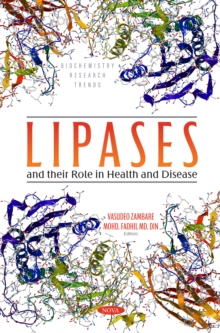
Mineral Water: From Basic Research to Clinical Applications PDF
Edited by Maria Joao Martins
Part of the Biochemistry Research Trends series
Description
Mineral Water: From Basic Research to Clinical Applications, written by a multi-disciplinary group of educators, researchers and medical doctors, gathers a timely review on the effects of mineral waters upon several aspects of human biology and pathophysiology, as it gives an overview of how mineral waters may provide a positive impact on different settings, namely health promotion and disease prevention as well as rehabilitation and therapy.
A major advantage of this book is the gathering of up-to-date information on the benefits, and associated mechanisms, of mineral waters through different routes of internal and external exposure.
Concepts and classifications of mineral waters are disclosed.
The relevance of spa therapies in Chronic Obstructive Pulmonary Disease, otorhinolaryngology, rheumatic diseases and dermatology is addressed.
The mitigation of diet-induced acid load by mineral waters consumption and its relevance for bone health is discussed.
The importance of mineral waters consumption against metabolic dysfunction through gut microbiota modulation is argued.
Modulation of membrane transporters by mineral water is reviewed.
Mineral Water: From Basic Research to Clinical Applications aims to target health professionals (medical doctors, nurses, physiotherapists, nutritionists and dietitians), educators and students (in the aforementioned subject areas) as well as health science researchers (biochemists, biologists and pharmacists), beverage companies and policy-makers.
Information
-
Download - Immediately Available
- Format:PDF
- Pages:314 pages
- Publisher:Nova Science Publishers, Inc.
- Publication Date:09/02/2022
- Category:
- ISBN:9781685075415
Information
-
Download - Immediately Available
- Format:PDF
- Pages:314 pages
- Publisher:Nova Science Publishers, Inc.
- Publication Date:09/02/2022
- Category:
- ISBN:9781685075415










